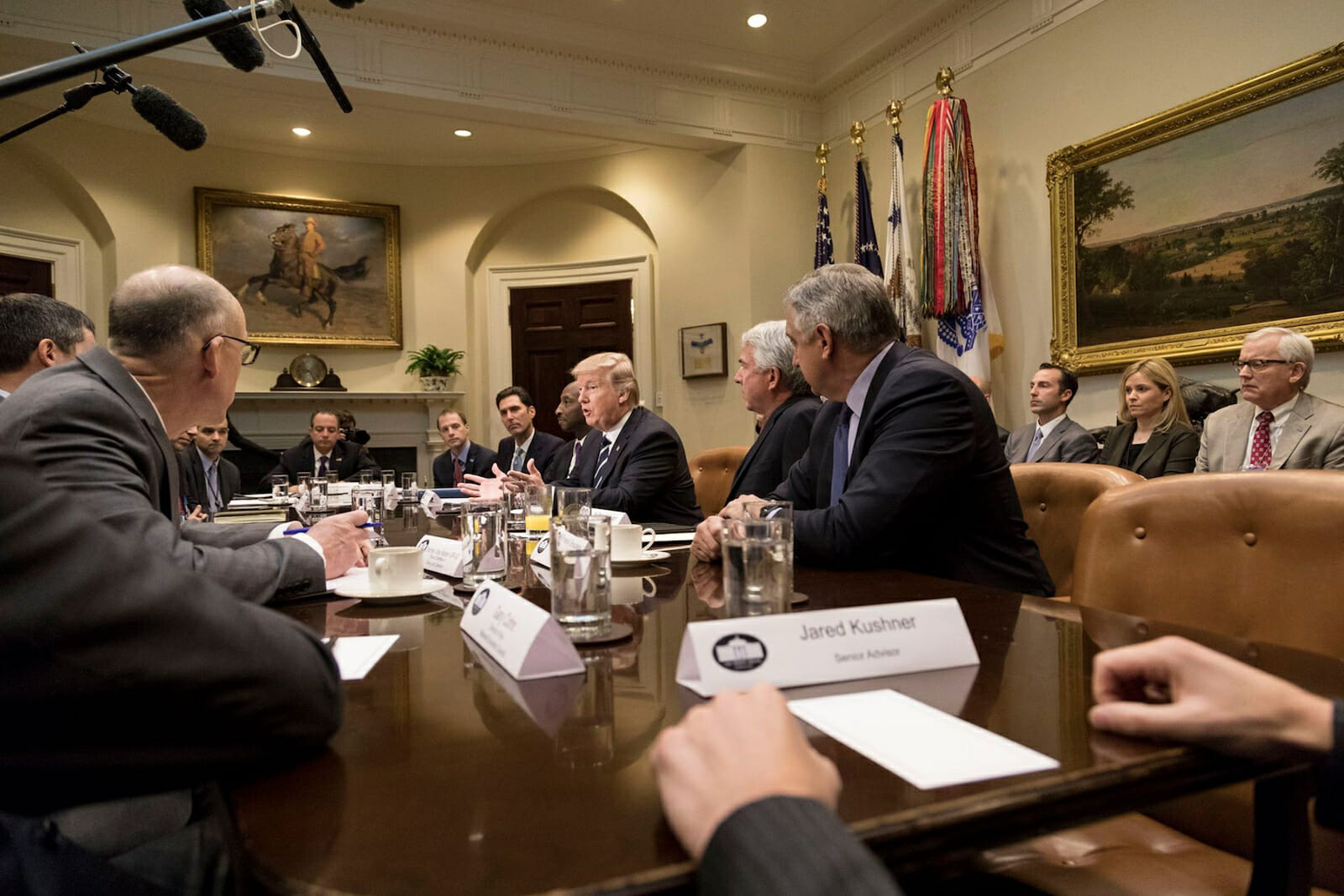
America’s Midterm Elections and the Impact on Washington’s Gulf Agenda
With Democrats retaking control of the House of Representatives, the Trump administration will face the challenges brought about by a divided government for the second half of his first term. How will this new political landscape impact Washington’s foreign policy toward the Gulf? With Democrats possessing more power in the U.S. government, how might the Trump administration change its policies vis-à-vis the Yemeni civil war, Iran, and the Gulf crisis?
Amid the fallout of the Jamal Khashoggi murder case and the growing opposition to Washington’s role in Yemen, the new Congress will certainly scrutinize America’s relationships with the Kingdom of Saudi Arabia and the United Arab Emirates (UAE) more closely. This is especially true now that the CIA concluded that Saudi Arabia’s Crown Prince Mohammed bin Salman (MbS) ordered Khashoggi’s murder. Future investigations into the administration’s relationships with both states’ top leaders could produce negative results for Riyadh and Abu Dhabi. Doubtless, the crisis in Yemen and Khashoggi’s case have now become linked from an American standpoint as a growing number of lawmakers see cutting down U.S. support for the Saudi-led campaign in Yemen as an appropriate way to hold Riyadh accountable for the journalist’s death.
Trump, according to some lawmakers, is lying in order to help MbS avoid accountability for Khashoggi’s murder. The sanctions that the administration placed on 17 Saudi individuals fall short of enough action in the eyes of lawmakers who demand further sanctions and/or freezing of arms sales to Riyadh. There is indeed disagreement among members of the U.S. Senate and House of Representatives about whether using sanctions or the weapons sales card would be more effective and justifiable.
Those who favor suspending arms sales have a strong case to make on moral grounds given the suffering across Yemen, which has been greatly exacerbated by the Saudi/Emirati bombings and blockades. Whereas at earlier junctures in the Yemeni civil war most congressional opposition to Washington’s support for Riyadh in the conflict came from Democrats, it now comes from politicians from both major parties.
Nonetheless, the Trump administration has made it clear that it stands by the Saudis regarding Yemen. Recent reports that the administration is considering punishing the Houthi rebels by designating their dominant militia, Ansarullah, a terrorist organization raises doubt about the administration’s willingness, as well as capacity, to bring the civil war to a halt and bring the parties (including Ansarullah) to the table. Although the administration sees Yemen as a key battleground in the struggle against Iran’s influence, which the U.S. aims to aggressively counter via the recently imposed sanctions on Iranian oil exports, shipping, and banking, more and more lawmakers do not accept such a narrative about the Yemeni crisis. While Iran’s malign activities in Yemen are evident, a growing number of officials in Washington are increasingly outraged by the humanitarian disaster in Yemen, which has left millions on the brink of famine, and is attributed to Saudi/Emirati bombing of the country far more than anything that Tehran has done.
As the Yemeni civil war continues to rage, the White House’s Iran policies may become more of a partisan issue in Washington. Trump’s opposition to the Joint Comprehensive Plan of Action (JCPOA)—commonly known as the Iranian nuclear accord—has largely factored into his efforts to contrast himself from President Barack Obama as much as possible, underscoring how domestic politics influence this president’s foreign policy decision making more than any previous American president.
Unquestionably, many Republicans support the White House’s plans for isolating Iran and pressuring the Islamic Republic into changing its regional conduct through both Trump’s decision to withdraw Washington from the JCPOA as well as his pressure against Tehran on non-nuclear issues. Yet many Democrats believe that Trump pulling the U.S. out of the Iranian nuclear deal was a grave mistake, maintaining that the JCPOA’s survival strongly serves the interests of Washington, as well as its regional allies.
That said, most of the important decisions that the U.S. will need to make about Iran throughout the remainder of Trump’s presidency will be made by the White House, not Democratic members of the House of Representatives. At the same time, however, congressional opposition to Trump’s Iran policies can undermine the White House’s agenda and make evident to the international community the lack of consensus in Washington with respect to the president’s strategies for countering the Islamic Republic that have left the U.S., more so than Iran, isolated internationally.
The Gulf crisis might be an issue of growing concern to lawmakers on both sides of the aisle as well; the dispute, along with some other factors, dim the prospects for an Arab NATO establishment. At a time when Saudi Arabia is in need of greater goodwill in Washington, newly empowered Democrats may pressure the administration to make the U.S. displeasure with the continued siege of Doha increasingly known to officials in Riyadh. Yet, unlike Iran, the issue of Qatar and Doha’s relationship with Washington is not so much of a partisan issue, thus U.S. policy toward the blockade is unlikely to shift drastically due to the midterms.
Looking ahead, the Saudis and Emiratis certainly have concerns about the new political landscape that will define Washington next year with newly empowered Democrats putting greater pressure on the White House on the issues of Yemen, Khashoggi’s murder, and possibly the Qatar crisis. To be sure, the U.S.-Saudi relationship faces an unprecedented crisis. The outcome of the upcoming Senate hearing, reportedly to be conducted by Secretary of State Mike Pompeo and Secretary of Defense James Mattis, will have major implications for bilateral affairs even before the new U.S. Congress meets next year. Although unclear how lawmakers will act following this hearing, a rift is clearly widening between the American president who is standing by MbS, and members of Congress who want the U.S.-Saudi relationship visited and the Kingdom’s Crown Prince held accountable.
